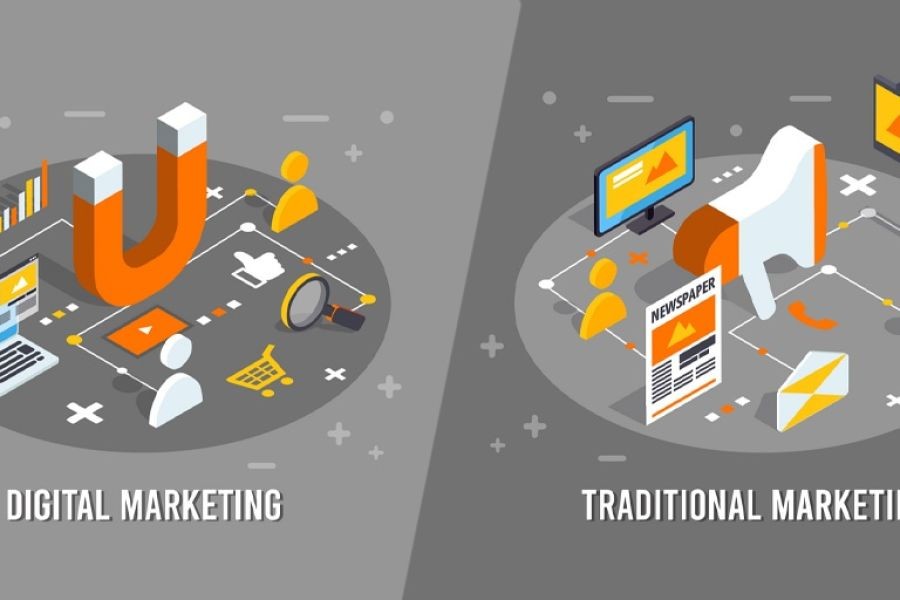In the rapidly evolving business landscape of New Zealand, where digital innovation and sustainability are at the forefront, small businesses are discovering that traditional marketing strategies are increasingly ineffective. As consumer behavior shifts and digital platforms dominate, small businesses are urgently re-evaluating their marketing approaches. In this article, we explore why conventional marketing tactics are falling short in New Zealand, backed by insightful analysis and data-driven insights.
The Changing Face of New Zealand's Market
The digital transformation has significantly altered how businesses interact with their customers. In New Zealand, a country known for its tech-savvy population, over 90% of consumers are connected to the internet, with 80% actively using social media platforms (Stats NZ, 2023). This shift necessitates a corresponding change in marketing strategies. Traditional methods like print advertising and cold calling are losing ground to digital channels that offer targeted, data-driven marketing solutions.
Case Study: The Decline of Print Advertising
One stark example of the shift in marketing dynamics is the decline of print advertising. A mid-sized retail business in Auckland, once reliant on newspaper ads, found that their customer engagement and sales were dwindling. After transitioning to a digital marketing strategy, utilizing social media and email campaigns, they experienced a 35% increase in customer engagement within six months. This shift not only saved costs but also aligned better with their target demographic's media consumption habits.
The Digital Divide: Pros vs. Cons of Traditional Marketing
Pros of Traditional Marketing
- Brand Recognition: Long-standing methods like TV and radio ads still offer broad audience reach, aiding brand recognition.
- Tangible Connection: Physical marketing materials can create a tangible connection with consumers, which digital media sometimes lacks.
Cons of Traditional Marketing
- High Costs: Traditional marketing can be expensive, with limited ROI compared to digital alternatives.
- Limited Targeting: Unlike digital platforms, traditional methods lack precise targeting capabilities, leading to wasted resources.
Data-Driven Insights: Why Small Businesses Need to Adapt
According to the Ministry of Business, Innovation, and Employment (MBIE), digital marketing expenditures in New Zealand are projected to grow by 20% annually, reflecting the necessity for small businesses to adapt to these trends. A survey by NZTech highlights that businesses utilizing digital marketing strategies report a 30% increase in revenue compared to those that don't.
Industry Insight: The Role of AI in Marketing
AI tools are revolutionizing marketing by offering personalized customer experiences. For instance, AI platforms like Persado and Jasper.ai automate advertising campaigns, which can reduce marketing costs by over 40% (NZ Business Insights, 2025). As New Zealand businesses increasingly adopt AI, they can expect enhanced customer engagement and operational efficiency.
Common Myths About Marketing Strategies
Myth 1: Traditional Marketing is Dead
Reality: While digital marketing is crucial, traditional methods still have a place, particularly in industries like real estate and local services where personal connections are vital.
Myth 2: Social Media is Only for Big Brands
Reality: Social media platforms offer scalable solutions for businesses of all sizes, enabling small businesses to reach niche markets effectively.
Myth 3: Email Marketing is Ineffective
Reality: Email marketing remains one of the most cost-effective strategies, with a reported ROI of 42:1, according to the Direct Marketing Association.
Future Trends and Predictions
The marketing landscape in New Zealand is set to become even more digital over the next five years. By 2028, it's predicted that AI-driven marketing tools will dominate, accounting for 70% of all advertising spend (Deloitte, 2024). Small businesses that leverage these technologies early will gain a significant competitive advantage.
Conclusion: Embracing Change for Future Success
For New Zealand's small businesses to thrive, embracing digital marketing is no longer optional—it's a necessity. By integrating AI tools, focusing on data-driven strategies, and maintaining a balance between traditional and digital methods, businesses can enhance their sustainability and growth.
What strategies has your business adopted to stay ahead in the digital age? Share your experiences in the comments below!
People Also Ask
How does digital marketing impact small businesses in New Zealand?Digital marketing allows small businesses to target specific demographics cost-effectively, leading to a 30% increase in revenue, as per NZTech.
What are the biggest misconceptions about traditional marketing?One common myth is that traditional marketing is completely outdated, but it still holds value in certain industries like real estate.
Related Search Queries
- Digital marketing trends in New Zealand
- AI tools for small businesses
- Impact of social media on small businesses
- Benefits of email marketing
- Traditional vs. digital marketing strategies

































TorriNothl
11 months ago